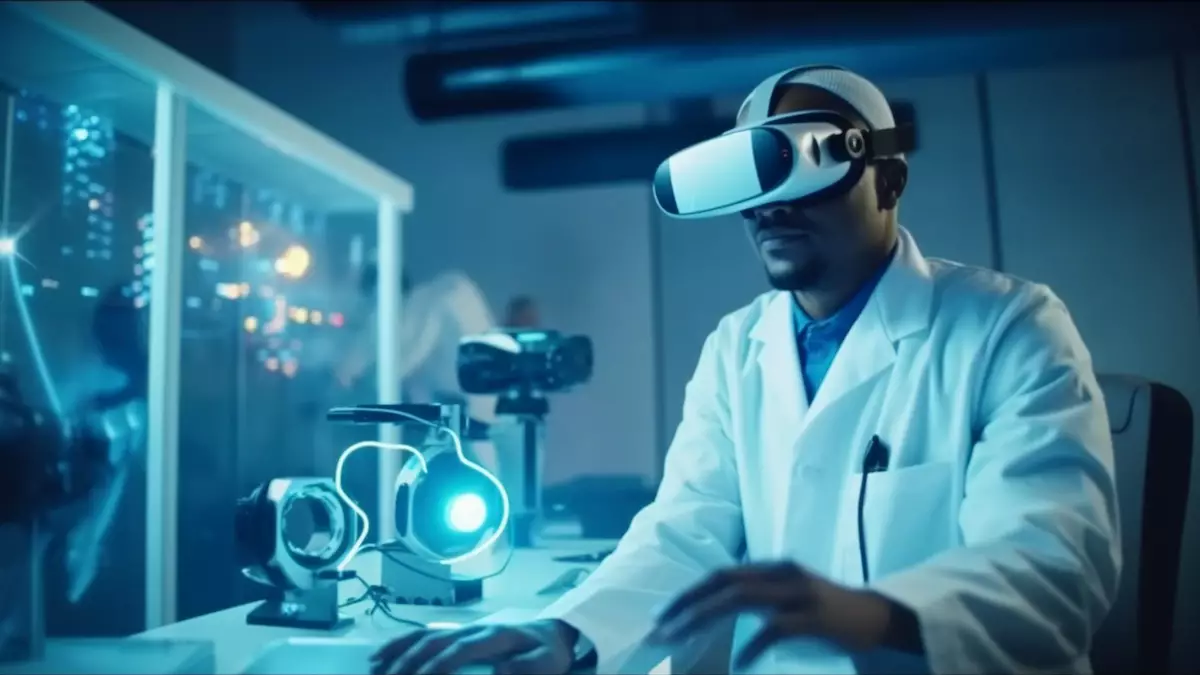In a groundbreaking event last week, the Shwe La Min Hospital witnessed the convergence of technology and medicine in the form of a digital surgery. Professionals from Yangon and Paris came together virtually, thanks to the Veyond Connect platform developed by Veyond Metaverse. This initiative aimed to not only bridge physical distances but also redefine healthcare delivery on a global scale. The project, spearheaded by Adam Choe, Joon Chung, and Professor Dr. Flam, had much broader ambitions than simply advancing technology. It sought to revolutionize healthcare access and provision worldwide.
Redefining Healthcare Delivery
The digital surgery facilitated by Veyond Metaverse showcased the potential of state-of-the-art XR technology, immersive experiences, and tactile haptic feedback. It allowed surgeons from different parts of the world to collaborate seamlessly as if they were standing side by side. By untethering healthcare provision from geographical constraints, this initiative aspired to enhance the understanding and accessibility of healthcare for billions of people globally. The efforts of Veyond Metaverse in this sector have gained recognition, with nominations at prestigious events such as the 7th International VR Awards and the Digital Health Awards 2023. Meanwhile, Shwe La Min Hospital aims to establish itself as a beacon of healthcare excellence in Myanmar, further propelling the integration of healthcare services within the Metaverse.
Advantages of Integrating Medical Services into Virtual Environments
The incorporation of healthcare services into virtual environments holds numerous advantages for both healthcare professionals and patients. One significant benefit is the potential improvement in patient engagement. By utilizing VR technology, healthcare providers can create immersive experiences that enable patients to actively participate in their own care. This newfound engagement can lead to better treatment adherence and outcomes. Additionally, virtual environments can facilitate more accessible healthcare delivery, especially for individuals residing in remote or underserved areas. Through telemedicine and virtual consultations, patients can receive expert medical advice regardless of their physical location.
The applications of VR technology within the healthcare sector extend beyond patient care and medical training. Hospitals are exploring the use of virtual tour guides to assist visitors in navigating their facilities. By leveraging computer-generated voices and interactive maps, these guides minimize confusion and increase efficiency within bustling hospital settings. Psychologists are also embracing VR technology as a therapeutic tool. By creating safe and controlled environments, patients can confront past traumatic experiences or address emotions linked to social anxiety or phobias. This innovative approach to therapy shows promise in improving treatment outcomes.
Virtual Reality (VR) and Augmented Reality (AR) have the potential to revolutionize patient-doctor interactions. These technologies can facilitate more tailored treatment plans by providing healthcare providers with a comprehensive understanding of a patient’s condition. During surgical procedures, VR can assist in precise diagnoses and guide surgeons in real-time, reducing risks and improving patient outcomes. Moreover, VR offers a safe environment for medical professionals to practice complex procedures before performing them on real patients, thus increasing overall safety and proficiency.
As the healthcare industry continues to embrace technological advancements, the integration of VR and AR is poised to transform the way healthcare is delivered. The successful digital surgery conducted by Veyond Metaverse and the Shwe La Min Hospital serves as a testament to the possibilities that lie ahead. By leveraging XR technology and immersive experiences, healthcare professionals can foster collaboration and overcome geographical barriers, ultimately working towards a future where top-tier healthcare is accessible to all. With ongoing developments and innovations, the future of healthcare holds tremendous potential, promising to redefine the way healthcare is accessed, delivered, and experienced worldwide.

